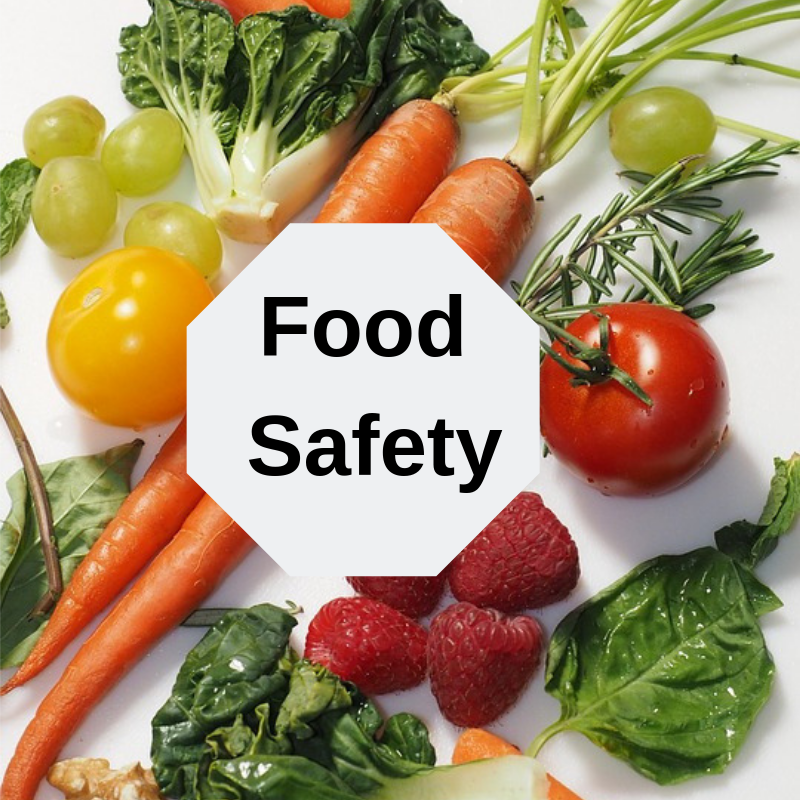Food Safety Matters
Food Safety impacts all living beings, rich or poor, old or young, including our beloved animals. Food safety is important from Farm to Fork, every step in the harvesting, manufacturing, packaging, shipping plays a vital role. This not only impacts public safety but also the economic state of a state. In this blog, let us understand the importance of Food Safety & explore some key measures to ensure the safety of food we consume.
Human Factor
At the heart of food safety lies the health and safety of consumers. Consuming contaminated or improperly handled food can lead to a range of illnesses, from mild stomach upset to severe cases of food poisoning. Vulnerable populations such as children, the elderly, pregnant women, and individuals with compromised immune systems are particularly at risk. In extreme cases, foodborne illnesses can result in hospitalization, long-term health complications, food-borne outbreaks or even death. Therefore, ensuring the safety of our food is paramount to safeguarding public health.
Economic Factor
Beyond the immediate health consequences, food safety incidents can have significant economic repercussions. Product recalls, outbreaks of foodborne illnesses, and contamination scandals can cause widespread panic among consumers, leading to a loss of trust in food producers and suppliers. This loss of confidence can have lasting effects on businesses, resulting in financial losses, damaged reputations, and even bankruptcy in severe cases. Moreover, the costs associated with treating foodborne illnesses and managing outbreaks place a considerable burden on healthcare systems and governments. By investing in food safety measures, we can mitigate these risks and protect both public health and economic stability.
Globalization & Supply Chain
The globalization of food supply chains has brought about numerous benefits, such as increased access to diverse foods year-round. However, it has also introduced new challenges in terms of food safety. With food products traveling across continents before reaching consumers, there are more opportunities for contamination, adulteration, temperature abuse or exposure to pathogens. Ensuring the safety of imported foods requires robust regulatory frameworks, international cooperation, and stringent quality control measures at every step of the supply chain. By strengthening global food safety standards and enforcement mechanisms, we can better protect consumers from potential hazards associated with imported foods.
Technology & Innovation
Advancements in technology offer promising solutions for enhancing food safety practices. From blockchain to traceability systems, sensor technologies, and rapid detection methods, there is a wide array of tools available to monitor and manage food safety risks more effectively. These innovations enable real-time tracking of food products throughout the supply chain, allowing for swift identification and containment of potential hazards. Additionally, technologies such as artificial intelligence and machine learning can analyze vast amounts of data to predict and prevent food safety incidents before they occur. By embracing these technologies, we can improve the transparency, efficiency, and reliability of our food safety systems.
Consumer Awareness & Education
Empowering consumers with knowledge about food safety is crucial in promoting safe food handling practices at home. From proper storage and refrigeration to thorough cooking and hygiene habits, there are simple steps that individuals can take to reduce the risk of foodborne illnesses. By educating consumers about the importance of reading labels, proper storage conditions, understanding expiration dates, and recognizing signs of food spoilage, we can empower them to make informed choices and protect themselves and their families. Moreover, fostering a culture of transparency and accountability within the food industry encourages businesses to prioritize safety and quality in their operations.
Conclusion
Food Safety is everyone’s responsibility. It is not only limited to the Manufacturer, Government, retailer etc. but also the consumer. It is a culture that must be fostered from end-to-end. If we adopt this culture, it will keep our families, neighborhood, economy safe! Always remember, Food Safety involves & impacts everyone in the Food Chain.
Assured Food Safety Consulting’s certified SQF Consultants and Lead HACCP instructors have been helping food businesses since 2022. We provide food safety plan creation services and HACCP/GFSI training services. If you require assistance with your HACCP plan or SQF program, contact us at info@assuredfoodsafety.ca to request a quote.


